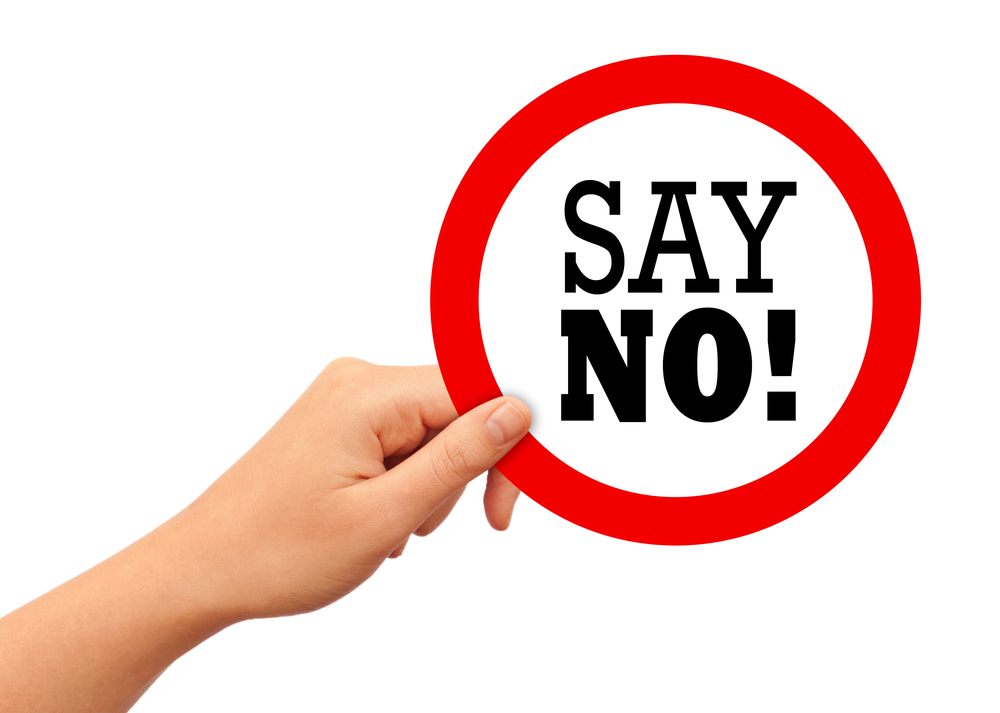“No” is Not a Four-Letter Word
One of the hardest words any of us have to say is the word no.

There are reasons of course. We don’t want to make others feel bad. We want to fit in. We don’t want to look mean. The sad part is that even though we say yes, we’re still not happy and resentment builds.
The key to getting past this fear of saying no is to analyze the word for what it really means:
“No” simply means I’m not interested in your idea, but it doesn’t necessarily reflect how I feel about you.
One of my all-time favorite books is a A Game of Numbers by Nick Murray. In it, the author who is teaching financial advisors how to get more clients makes the point that “no” is a rejection of the idea, not of you. Once you quit making things personal, it’s a whole lot easier to accept saying or hearing the word “no.”
Recently, a good friend of mine pitched a business deal to me. I thought it had some promise, but after reflecting over the weekend, I realized it wasn’t for me. Now the “old” me would have probably accepted the offer because I really like my friend and wouldn’t want him to feel like I rejected him. But after thinking about it, I realized it had nothing to do with him, just the idea. When I declined, I felt better and knowing him, he probably said, “cool” and just moved on. I am going to keep my eyes open for people who might be interested and so in the end, everybody wins.
When it comes to this big decision point, when you feel like you should say yes but really want to say no, consider the following:
- “No” is not a personal rejection (although in some cases it is and maybe should be)
- “No” could mean I might be interested later, but I will let you know.
- “No” shouldn’t be masked by statements such as “let me think about it” or “it’s complicated.” Just say the word!
- “No” is something a person needs to hear. In my business, I’d rather you tell me “no” right up front so I don’t waste a lot of time writing a proposal and holding dates on my calendar. I don’t see you as rejecting me. Let’s just not waste each other’s time.
- “No” takes practice. We’ve been conditioned to please others. If you don’t want something, say the word!
- “No” protects you from anxiety, frustration, and anger. If you are tired of experiencing those emotions, get used to saying the word!
None of us wants to appear disagreeable or hurt the feelings of others. It’s why we sometimes go overboard to please, and agree to things we don’t want. This week, start identifying your boundaries and get busy protecting them with the word “no.”

Responses